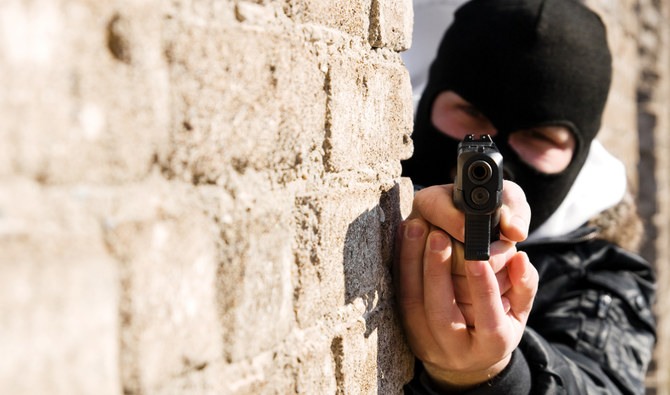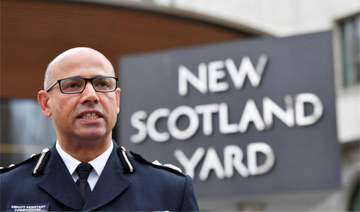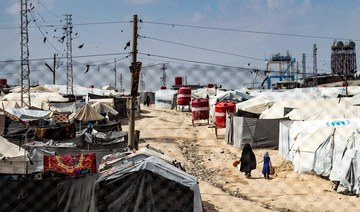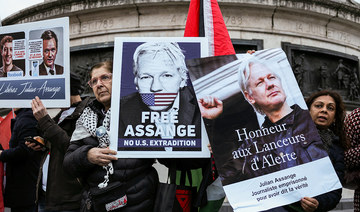LONDON: More than twice as many people of white ethnic appearance are being investigated for terror offenses by British authorities than those of Asian appearance, new figures show.
The UK also recorded a record number of children arrested on suspicion of terror offenses.
Figures released by the Home Office on Thursday for the year up to September are based on the ethnic appearance of the arrestee as recorded by the arresting officer. They showed that 101 white people were arrested on suspicion of terror offenses, while just 49 people of Asian appearance were arrested within the same timeframe.
A Home Office report said: “The proportion of white people arrested exceeded the proportion of Asian people arrested for the fourth consecutive year.
“Arrests of persons of white ethnic appearance accounted for 54 percent of arrests, up 10 percentage points on the previous year. Those of Asian ethnic appearance accounted for 26 percent of terrorist-related arrests, down 12 percentage points.”
It said that the coronavirus pandemic had caused a broad drop in terror arrests across the board — with the exception of children.
Senior National Coordinator for Counter Terrorism Policing Deputy Assistant Commissioner Dean Haydon said: “We are very concerned that children are becoming an increasing proportion of our arrests.
“But it doesn’t have to be this way. Ideally, we would identify when a young person is being led down the path towards terrorism activity and use the Prevent program to try and put them on a different path.”
Jonathan Hall QC, the UK’s independent reviewer of terrorism legislation, told The Independent newspaper that the age and race figures were “consistent with increased targeting of young suspected right-wing terrorists operating online.”
He wrote on Twitter: “The main principal offence charged is disseminating terrorist publications and my educated guess that this is taking place online.”
Some criticize police and other authorities for focusing too hard on right-wing terrorism and artificially inflating the threat for political reasons. But Hall rejected this idea.
“I don’t believe increased visibility of activity against right-wing terrorism is sign of a politically correct diversion from the main threat of Islamist terrorism. Counter-terror police and MI5 are ruthless in prioritization,” he said.
“Online interactions do drive violent hostile ideologies, and some online discussions will involve discussions of targets and weapons, especially firearms.”
According to The Independent, as of Sept. 30, 71 percent of the 218 people in prison for terrorism-connected offenses in Britain were categorized as holding Islamist-extremist views, 22 percent extreme right-wing, and 7 percent other.






















